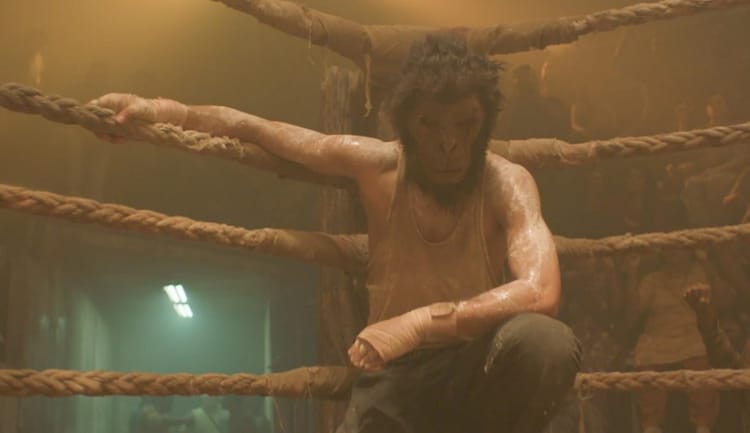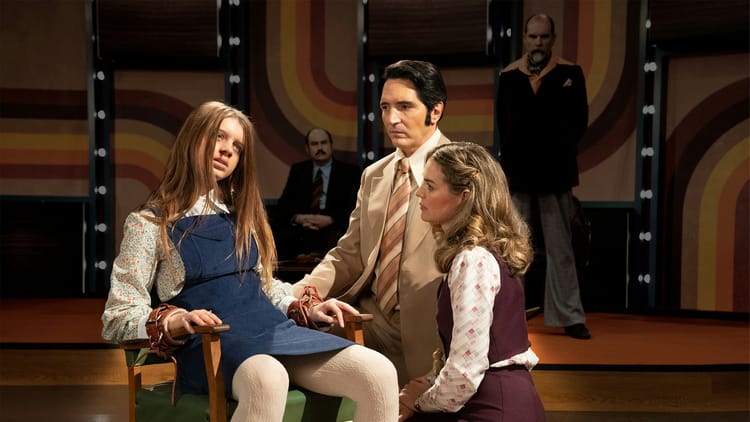The Killer

For years, David Fincher has been fascinated with the sociopath. Sometimes they are the subjects of investigation by detectives or journalists in “Se7en” or “Zodiac,” sympathetic anti-heroes in “The Girl with the Dragon Tattoo” or “Gone Girl,” symbols of anomie in “Fight Club,” or Mark Zuckerberg. Perhaps the only outlier is Joseph L. Mankiewicz, the protagonist of Fincher's last outing, “Mank,” a witty, verbose, emotional man, doing his best to dance Hollywood's dance without losing himself. He's a far cry from every other Fincher subject, especially, the unnamed protagonist of his newest film, "The Killer." Michael Fassbender as the unnamed Killer joins Fincher's esteemed club of exiles, as perhaps the most deadly of them all. But even with all the bodies left in its wake, "The Killer" may be Fincher's lightest film yet.
"The Killer," based on a comic book of the same name by Matz and Luc Jacamon, follows a unnamed international hitman after a job goes wrong. It's akin to "Le Samouraï," an early noir film from Jean-Pierre Melville, where a Frenchman carves his own way as a master-less assassin. Much like "Le Samouraï," we're not meant to connect with it's protagonist: we, as civilians, simply cannot empathize with a man who kills with no moral purpose or mercy. Instead, we are fascinated by his behaviors and habits, viewing him as a subject rather than a proxy for us to enter the story. We're kept at a distance from Michael Fassbender's titular killer, a peculiar, Smiths-listening, keto-diet, mantra-reciting assassin.
The film brings us into the full tedium of being an assassin for hire, and doesn't attempt to gloss over it with sleek style or swift cuts. We're with him all along the way, as he moves through malls, airports, car rental places, and gas stations. Nothing about this character is effortless. His precision is almost exhausting, made more so by the modern era —the samouraï did not have to contend with fobs, for automated doors. But the samouraï also didn't have the benefit of Postmates deliveries or abandoned WeWork buildings.
At first, those details struck me as fun asides within what felt like a thin movie, certainly thinner than Fincher's other headier fare. But those details expose the layers of the film Fincher seems almost happy for people to miss. On one level, it's a light-fare thriller with excellently choreographed fights, precise cinematography, and style. For some, it'll land as a story not really about anything, that's enjoyable in the moment and forgettable once it's over.
But underneath that is the layer of the hitman as gig worker, person among the many, subject to the whims of the few. The Killer may seem comfortable with his place in the world, as his internal monologue constantly reminds us. But his actions tell us otherwise. Despite the intense control he exerts on himself, including monitoring his own heartrate, the Killer is never actually in charge. He's operating under someone else's script, following other people's rules. His control is a delusion, and his position precarious. His precision mirrors Fincher's own, a noted control-freak, using more CGI in "The Social Network" than was used in "Godzilla." Because, even for all his status in the industry, Fincher is still subject to the might of the studios. For that reason, "The Killer" has more in common with "Mank" than it does with "Se7en" or any of Fincher's other crime-fare. Both films are about characters desperately trying to maintain a sense of control in a system that is constantly uprooting them and denying them peace. They're about a person, trying to do their job, amidst a sea of chaos and unpredictability. And in a way, they're about a director, who once said directing is the panic that comes when "the sun is setting and you've got to get five shots and you're only going to get two." "The Killer" may seem light compared to Fincher's other sociopaths. But when seen as a continuation of "Mank," it's may be his most intimate film yet.




